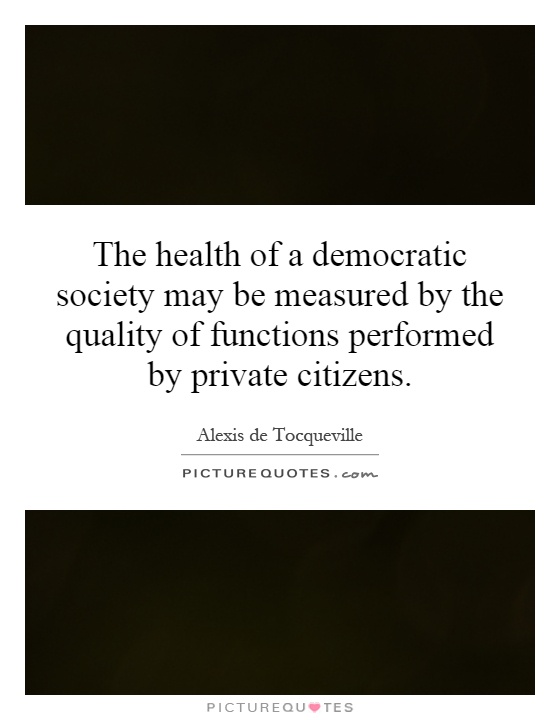The health of a democratic society may be measured by the quality of functions performed by private citizens

The health of a democratic society may be measured by the quality of functions performed by private citizens
Alexis de Tocqueville, a French political thinker and historian, is best known for his work "Democracy in America," in which he explores the nature of democracy and its impact on society. One of the key themes in Tocqueville's work is the importance of private citizens in maintaining the health of a democratic society.Tocqueville believed that the quality of functions performed by private citizens was a crucial indicator of the health of a democratic society. He argued that in a democracy, the government should not be solely responsible for the well-being of society, but that private citizens also have a role to play in shaping the social and political landscape. Tocqueville believed that a vibrant civil society, made up of active and engaged citizens, was essential for the success of democracy.
According to Tocqueville, private citizens perform a variety of functions that are essential for the functioning of a democratic society. These functions include participating in civic organizations, volunteering in their communities, and engaging in political activism. Tocqueville believed that when private citizens are actively involved in these activities, they help to create a sense of community and solidarity that is essential for the success of democracy.
Tocqueville also believed that private citizens play a crucial role in holding the government accountable. He argued that in a democracy, it is important for citizens to be vigilant and to speak out against government abuses of power. Tocqueville believed that when private citizens are actively engaged in monitoring the government and holding it accountable, they help to ensure that democracy remains strong and vibrant.












 Friendship Quotes
Friendship Quotes Love Quotes
Love Quotes Life Quotes
Life Quotes Funny Quotes
Funny Quotes Motivational Quotes
Motivational Quotes Inspirational Quotes
Inspirational Quotes